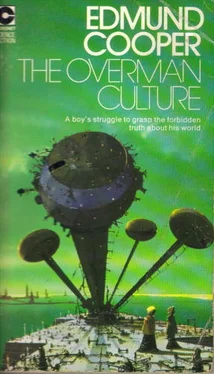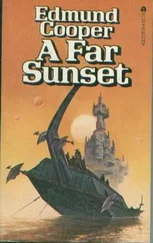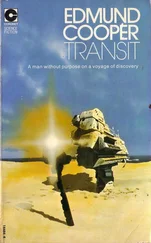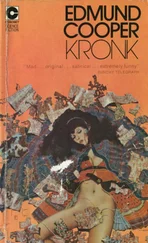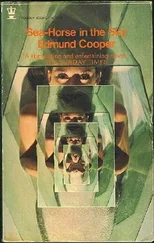Edmund Cooper - The Overman Culture
Здесь есть возможность читать онлайн «Edmund Cooper - The Overman Culture» весь текст электронной книги совершенно бесплатно (целиком полную версию без сокращений). В некоторых случаях можно слушать аудио, скачать через торрент в формате fb2 и присутствует краткое содержание. Город: London, Год выпуска: 1977, ISBN: 1977, Издательство: Coronet Books, Жанр: Фантастика и фэнтези, на английском языке. Описание произведения, (предисловие) а так же отзывы посетителей доступны на портале библиотеки ЛибКат.
- Название:The Overman Culture
- Автор:
- Издательство:Coronet Books
- Жанр:
- Год:1977
- Город:London
- ISBN:978-034017860
- Рейтинг книги:5 / 5. Голосов: 1
-
Избранное:Добавить в избранное
- Отзывы:
-
Ваша оценка:
- 100
- 1
- 2
- 3
- 4
- 5
The Overman Culture: краткое содержание, описание и аннотация
Предлагаем к чтению аннотацию, описание, краткое содержание или предисловие (зависит от того, что написал сам автор книги «The Overman Culture»). Если вы не нашли необходимую информацию о книге — напишите в комментариях, мы постараемся отыскать её.
The Overman Culture — читать онлайн бесплатно полную книгу (весь текст) целиком
Ниже представлен текст книги, разбитый по страницам. Система сохранения места последней прочитанной страницы, позволяет с удобством читать онлайн бесплатно книгу «The Overman Culture», без необходимости каждый раз заново искать на чём Вы остановились. Поставьте закладку, и сможете в любой момент перейти на страницу, на которой закончили чтение.
Интервал:
Закладка:
The children set off in groups, but when they were a little distance from school, Michael left his group, wanting to be by himself. He wandered casually away, head down, as if he were already intent on looking for leaves.
He noticed that a girl had also left the group. She was following him. She had yellow hair, and her name was Ellen Terry.
Michael quickened his pace, but the distance between him and Ellen remained the same. Finally, he began to run.
He ran as fast as he could, without looking back. He ran until he was exhausted. Then he flung himself down on the grass, sobbing for breath, while the sweat trickled down his forehead and into his eyes.
When he had recovered himself, he sat up and gazed back. The school was out of sight. But there was Ellen Terry, not very far away, apparently looking for leaves.
Michael was still trembling a little and breathing heavily from his exertions. But Ellen looked quite at ease—not at all like a child who had run a long way at high speed.
Michael stood up unsteadily and walked back toward her. She affected not to notice, or not to be interested.
“Why are you following me?”
“I’m not following you. I am looking for leaves. Have you found any interesting ones?”
He ignored the question. “I ran away as fast as I could. I ran until I couldn’t run anymore. You must have run very fast to keep up with me.”
“I like running,” said Ellen. “It’s nice.”
“I want to be alone.”
“You are alone.”
“No, I’m not. You followed me.”
“I didn’t follow you. I was just running. And, anyway, you are alone if you want to be alone.”
“Ellen, go away. Go and look somewhere else.”
“I shall go where I please.”
“Or stay here, and I will go away.”
“I shall go where I please.”
She seemed to be laughing at him. She seemed to be deliberately tormenting him. Michael had been shaking with exertion; but now the tiredness had mysteriously gone and he was just shaking with rage.
“If you don’t go away,” he said, amazed at his own ferocity, “I’ll kill you.”
She began to laugh. With a cry of rage, he rushed at her and they both fell on the ground. Michael’s fingers were round her neck tight. But she didn’t seem to mind. She was still laughing. He lifted her head and banged it hard on the ground, again and again. But still she laughed as if it was all no more than a game. In desperation and humiliation, he tried to bite her throat. He bit until the teeth ached in his jaw, but still the laughter came.
Suddenly, his rage and energy were spent. He let Ellen go and lay there with his face hidden by his arm, crying with misery and sheer humiliation.
The laughter stopped. Presently he felt Ellen touch him gently. She began to stroke his hair.
He sat up and looked at her, wiping the tearstains from his face and trying to understand what could not be understood.
Ellen’s hair was untidy and there were bits of grass and smears of soil on her dress. But she seemed unhurt. She seemed amazingly unhurt.
“Poor Michael,” she said softly. “I was only teasing. I teased you too much. Poor Michael.”
“I—I tried to kill you,” he sobbed, wondering at the blind fury that had possessed him.
“No, you didn’t,” she said positively. “You tried to hurt me, that is all.”
“I didn’t hurt you?”
She shook her hair and laughed. “I’m very strong… Do you still want me to go away?”
“Yes. I’m unhappy. I want to be by myself.”
“Then I’ll go. Don’t forget to come back to school when the bell rings…. I’m sorry, Michael. I won’t tease you anymore.”
She stood up, smiled at him once again, then began to run away. She ran lightly, effortlessly. She ran as if she could go on like that forever.
Presently, Michael picked himself up and began to wander about aimlessly, looking for leaves. He found several, the usual ones—oak, sycamore, willow, chestnut, beech—the ones everyone else would take back. He tried to forget about Ellen and concentrate on leaves. He wanted a leaf that no one else would have.
“Michael Faraday can’t fight girls!” The words seemed to come from nowhere. Michael spun round, but there was no one to be seen.
Then he looked up. Horatio Nelson was sitting on the lowest branch of a large oak. He grinned at Michael and slithered back along the branch, climbing carefully down to ground.
“Fight me,” said Horatio.
“I can’t. You know that.”
“That’s right…. I can beat anybody—anybody except them.”
“Except who?”
“Except them. The others. You know.”
“Yes, I know,” said Michael gloomily. “Horatio, why are we afraid to talk about it?”
“To talk about what?”
“The—the difference.”
“I’m not afraid to talk about it.”
“Would you talk about it to them?”
“No.”
“Would you talk about it to your mother and father?”
Horatio pulled a face, made a noise signifying disgust. “I tried. They said I wasn’t old enough to understand. They said I must not get worried about silly ideas.”
“Would you talk about it to Miss Nightingale?”
“No.”
“But you will talk about it to me?”
“You are like me,” said Horatio, “not like them…. Children like us, we have to—to—” he floundered.
“To trust each other?” suggested Michael.
“Something like that…. I saw you at the cinema last Saturday.”
“I saw you, too.” Then Michael suddenly remembered something that had seemed very important. “Did you see Freddie Bartholomew talking to the Queen?”
“Yes.”
“He’s bigger than us,” said Michael excitedly. “He’s much bigger. Do you think he bleeds?”
Horatio was silent for a moment or two. Then he said: “Can’t tell. Not unless he was hurt…. Some of them are bigger than us.”
“Some of them are smaller, too,” pointed out Michael. “But we are all about the same size.”
They heard the bell ringing in the distance.
Horatio sighed. “We’d better go back, or they’ll ask questions. Give me some of your leaves. I haven’t got any.”
“The important thing,” said Michael with a flash of insight, “is for us to go on trusting each other and for us to go on trying to find things out, until we are old enough to understand.”
“Be careful,” advised Horatio. “Be very careful. They don’t like us trying to find things out.” Then he added calmly: “If you really want to kill Ellen Terry, you will have to push her out of a high window.”
Michael looked at him in astonishment. There was a question he was too afraid to ask.
Michael had a bad dream. He was with a number of other children, including Horatio Nelson, Ernest Rutherford, Jane Austen and Emily Bronte—all children who could bleed. Each child stood naked, feet buried in soft earth in a plant pot. The room was big, like a tremendous greenhouse; and the sun was shining through great, misted panes of glass.
The children stood motionless amid shrubs and tall, potted flowers. Every now and then, the gardener came with a huge watering can. He watered the flowers, the shrubs and the children. Michael wanted to talk to him; but he could not open his mouth. He could not move at all. The gardener had the face of Michael’s father.
When the gardener watered the children, the water turned into blood and dripped in terrifying, crisscrossing streams down their small pale bodies. Emily Bronte seemed to be weeping tears of blood. Horatio Nelson had a fixed grin on his face, and the red stream dripped from the corners of his mouth.
Michael strained and strained to open his lips. Finally, with a great effort, he was able to speak.
Читать дальшеИнтервал:
Закладка:
Похожие книги на «The Overman Culture»
Представляем Вашему вниманию похожие книги на «The Overman Culture» списком для выбора. Мы отобрали схожую по названию и смыслу литературу в надежде предоставить читателям больше вариантов отыскать новые, интересные, ещё непрочитанные произведения.
Обсуждение, отзывы о книге «The Overman Culture» и просто собственные мнения читателей. Оставьте ваши комментарии, напишите, что Вы думаете о произведении, его смысле или главных героях. Укажите что конкретно понравилось, а что нет, и почему Вы так считаете.
